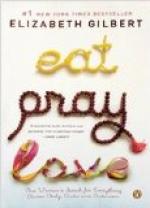The fleetness of the horse and the skill of his rider kept the latter out of harm’s way till the elephant seemed to be exhausted. The Americans thought he had done enough for one day, and the horseman retired. The great beast which had borne the brunt of three combats was allowed to cool off, and then his mahout conducted him to the rest he had bravely won. The nobles in attendance were sufficiently civilized to indulge in betting, and wagers had been made on the various fights in progress. Mr. Woolridge, who was a reformed sportsman, may have been tempted; but he did not feel at home in this kind of sporting, and he did not break through any of his good resolutions.
After the elephant had been removed, there was no little excitement among the assemblage in the veranda, and the betting seemed to be livelier than ever. A dozen officers armed with rifles and lances were stationed about the walls of the arena; and then an iron-bound cage was drawn into the enclosure, which contained a monstrous tiger. The guests wondered if this fierce brute was to be loosed in the arena, and they examined with interest into the safety of the situation. A number of rifles were brought into the veranda, with which the Guicowar and his native guests armed themselves.
“What does this mean, Sir Modava?” asked Captain Ringgold.
“The next battle will be a noble one, and immense wagers are depending upon the result,” replied the Hindu gentleman.
“Is that big tiger to fight the crowd here assembled?”
“Not at all; but it is such a battle as has never been fought here, if anywhere. His Highness had long desired to see a bull-fight, and he imported four of the finest Spanish bulls his agent could find. The toreadors came with them; but they all refused to fight in this arena, which they declared was not adapted to the purpose, and they went home. Three of the bulls died of disease, and only one was left. A discussion arose as to whether he was a match for a tiger. This battle is to settle the question; and the bets are mostly in favor of the tiger, though the Guicowar, with a few others, places his stake on the bull,” Sir Modava explained.
The tiger was released from the cage at a signal from the king. He leaped from the cage, and seemed to be astonished at the sight of so many people. Three officers took possession of the brute’s prison, armed with rifles to shoot him if he killed the bull. No person was in the ring, or within reach of the savage animal. The door by which the horseman had entered was thrown wide open, and the bovine, vexed to the highest degree of wrath, came into the arena with a bounding run.
The tiger had advanced quietly to the centre of it, though with the royal mien of the “king of beasts,” as he was here, his eyes like a couple of coals of fire. He caught sight of the bull as soon as he appeared, for he had doubtless killed many a bullock in the jungle. He planted himself on the ground in readiness for a spring. His present enemy saw him at the same instant; but he did not halt, or show any signs of fear.




